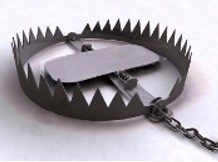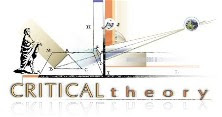Quote: "I find it curious that by exposing an inconsistency in feminist thinking, I’m (indirectly) accused of blaming women. I consider this an unnecessarily defensive reaction."
I hope you don’t have the impression that I was making such an accusation. My comments were directed at the remark(s) I quoted, and others similar (not by you), which demonstrate just the knee-jerk feminist reaction you discuss here.
My take on that reaction, the reflexive, sometimes almost violent refusal to acknowledge any similarity between female and male genital mutilation, is that it is a turf defence: The entire edifice of feminism is built on the definition of the female as the eternal helpless victim of male power, thus to admit that the “oppressor” (i.e. the white male) might be a “victim” in any circumstance would literally jerk the ground right out from under the feminist position. Moreover, I believe that all women know, whether they admit it to themselves or not, that infant male circumcision is an expression of Mother’s power; thus the instant refusal to even look at the issue, because to do so will necessarily lead to other thoughts they cannot bear to contemplate–including that they may be to “blame” for this egregious wrong.
In my own case, my mother has steadfastly stonewalled the subject for the last ten years. She was, has been and is in most respects a very good mother, but I suspect that as the notion of “blame” figures large in her thinking (as it does with most people, and especially, I feel, with women), her instinctive, emotional response is to refuse to deal with something that, if allowed into her consciousness, would, as she understands it, force her to feel very badly about herself.
The solution to this dilemma, as I’ve attempted to suggest, is to dump the concept of “blame,” which is useless in any case, since its only effect is to perpetuate suffering. As a Buddhist, my single aim is to decrease and if possible to prevent suffering; anything I do or say must be measured against this standard. If someone has done harm, of course that must be redressed if possible, but to add “guilt” or “blame” to the situation is a waste of energy that could be better used for the real task: to determine exactly what happened, why, how, and what best can be done to correct it.
So long as those whose power is the final authority in the situation refuse to acknowledge this fact, the cause-and-effect chain of suffering will continue. Including, I believe, in the case of infant male circumcision, many of the very same behaviours of men that women so complain about. Any badly abused animal will tend to be unreliable, treacherous, and sometimes violent; infant, pre-rational baby boys who were so savagely violated by their mothers–who in this world can we possibly trust if we cannot trust our mothers?–naturally grow into men who subconsciously fear women, and such fear can easily lead to unexpected violence–unexpected even by the perpetrator–when circumstances evoke such deeply repressed, unconscious feelings. Even at best, the encounter of the sexes will always be confusing, frustrating and sometimes frightening; the wisest preparation is to leave our children whole and support their growth into whole, internally-secure beings who can deal with challenges without losing their mental equilibrium.
Circumcision of children of either sex, like the branding of cattle or the docking and cropping of the tails and ears of dogs, is the physical manifestation of Mother’s instinctive sense of ownership: that her children are her possessions, to be modified to suit her tastes, and used to gratify her needs. After all, she made them, didn’t she? But is this the proper attitude toward children?
Previous Philalethes Index Next
.
------------------------------------------------------------------------------
Further Reading:
Philalethes #23 – Who’s to Blame?
Philalethes #21 - Circumcision
Search This Blog
The Jiggly Room
Polk High
The Encyclopedia Marxofeminist

Feminist "Equality" Includes The Loss of Free Speech
Sheeple Fighting Back!
- Black Sheep - You Tube (2min)
- Symantec (SYMC - NASDAQ) Downgraded to "Sell"
- Problems With Norton Internet Security?
- Cypress CEO Responds to Nun's Urging a "Politically Correct" Board Make-Up
- Do You Believe Women Have the Right to Free Speech?
- Canadian Feminists Getting Worried?
- Seven Ways To Get Traffic Without Google
Not All Women Are Like That! (NAWALT)
Myths, Legends & Religions

You are not god. Learn to observe without judging.

- Cypress CEO Responds to Nun's Urging a 'Politically Correct' Board Make-up
- The Baby Bomb: How the Boomers were Used to Demolish a Culture
- Statement of Bill Wood to the Committee on Ways and Means
- Why Did Feminists Attack the Family? -- by Heretical Sex
- Political Correctness - The Revenge of Marxism -- by Baron Bodissey
- Are Americans Practicing Communism? (The Ten Planks of the Communist Manifesto)
"We can't expect the American People to jump from Capitalism to Communism, but we can assist their elected leaders in giving them small doses of Socialism, until they awaken one day to find that they have Communism." -- Nikita Krushchev

THE ANIMAL FARM REALITY OF "FEMINIST EQUALITY:"
"Differences [between men and women], including the products of social inequality, MAKE UNEQUAL TREATMENT NOT UNEQUAL AT ALL." -- Catharine MacKinnon, "Reflections on Sex Equality Under Law," Yale Law Journal, 1991
Blog Archive
-
▼
2010
(71)
-
▼
August
(11)
- Philalethes #27 - In the "Battle of the Sexes," If...
- Philalethes #26 - The Law
- Philalethes #25 - You Can Have as Much Freedom as ...
- Philalethes #24 - Who's to Blame II
- Philalethes #23 - Who's to Blame
- Philalethes #22 - Don't Tell Me the Truth; You'll ...
- Philalethes #21 - Circumcision
- Philalethes #20 - Chivalry
- Philalethes #19 - Not Much Happens That Women Don'...
- Philalethes #18 - Opposed to Woman Suffrage?
- Philalethes #17 - When Women Rule
-
▼
August
(11)

"Only an armed people can be the real bulwark of popular liberty." -- V.I. Lenin
Repeal the Canadian Gun Registry

"A system of licensing and registration is the perfect device to deny gun ownership to the bourgeoisie." -- V.I. Lenin
"We shall destroy you from within!" -- Nikita Krushchev, during the Kitchen Debate, 1959
"Self Made Man" - Sculpture by Bobbie Carlyle
Websites
The Demographic Trap

"Destroy the family, you destroy the country." -- V.I. Lenin
"America is like a healthy body and its resistance is threefold: its patriotism, its morality, and its spiritual life. If we can undermine these three areas, America will collapse from within." -- Josef Stalin
Back to the Bible
A Non-Bible Thumper Point of View
"The aim of socialism is not only to abolish the present division of mankind into smaller states and all-national isolation, not only to bring the nations closer to each other, but also to merge them." -- V.I. Lenin
No Thanks - We'd Rather Be Canadian!
Man-Made Global Warming is a Hoax being used to bring about Global Communism (Globalization)

"Every collectivist revolution rides in on a Trojan horse of 'emergency'. It was the tactic of Lenin, Hitler, and Mussolini. In the collectivist sweep over a dozen minor countries of Europe, it was the cry of men striving to get on horseback. And 'emergency' became the justification of the subsequent steps. This technique of creating emergency is the greatest achievement that demagoguery attains." -- Herbert Hoover
Beware the Cultural Marxism of Environmentalists
"The threat of environmental crisis will be the 'international disaster key' that will unlock the New World Order." -- Mikhail Gorbachev, quoted in "A Special Report: The Wildlands Project Unleashes Its War On Mankind", by Marilyn Brannan, Associate Editor, Monetary & Economic Review, 1996, p. 5

ABOLISH THE UNITED NATIONS
The Marxism of Multi-Culturalism

"Tolerance is how far a mechanical part can deviate from the norm before it screws up the entire machine." -- Any Mechanic
The Grinch That Steals Children's Souls

"Give us the child for 8 years and it will be Bolshevik forever." -- V.I. Lenin
"We must declare openly what is concealed, namely, the political function of the school...It is to construct communist society." -- V.I. Lenin
Extra, Extra!



"The oppressed are allowed once every few years to decide which particular representatives of the oppressing class are to represent them." -- Karl Marx
The Liberal Party of Canada = Cultural Marxist Agenda
- The Real Pierre Trudeau: Father of Canada's Permissive Society -- by Steve Jalsevac
- Pierre Elliot Trudeau - Cultural Marxist Wrapped In a Canadian Flag
- The Multi-Tasking Pink Proletariat
- The Right Dishonourable Paul Martin Wants Canadians to "Give Up A Little Of Our Sovereignty To Make The World Work." -- YouTube 2:38 (Maybe We Should Lock Him Up To Make Canada Work!)
Congratulations, Karl Marx!

Marxism Links (For Researching)

- A Brief Overview of Marxism: "Communist (Community) Oriented Policing" - by Phil Worts
- Antonio Gramsci - Collected Works, including the Prison Notebooks
- Antonio Gramsci's Life & His Marxist Theories Explained
- Communist Manifesto - by Karl Marx & Frederick Engels
- Herbert Marcuse Official Homepage
- Herbert Marcuse, Haters of
- Marxists Internet Archive
- The Conflict Tradition
- Women and Marxism
Rule by Science

Philosophy Corner

“Dialectical thought is related to vulgar thinking in the same way that a motion picture is related to a still photograph. The motion picture does not outlaw the still photograph but combines a series of them according to the laws of motion.” -- Leon Trotsky
Dialectical Thought is a Cornerstone of Marxism, and Feminism (Because They Are One In the Same)
The Marxist Dialectic's Zig-Zag

Wishing to advance in a room full of people, I do not walk through the aisle and straight toward my goal. Nor do I move slowly through the crowd shaking hands with friends and acquaintences, discussing points of interest, gradually nearing the objective. The dialectical pathway is different. It consists of a resolute forward advance followed by an abrubt turn and retreat. Having retreated a distance there is another turn and advance. Through a series of forwardbackward steps the goal is approached. To advance thus is to advance dialectically. The Communist goal is fixed and changeless, but their direction of advance reverses itself from time to time. They approach their goal by going directly away from it a considerable portion of the time. Lenin wrote the textbook, One Step Forward, Two Steps Back. Chinese Communist schoolchildren are taught to do the dialectical march taking three steps forward and two steps back. If we judge where the Communists are going by the direction in which they are moving we will obviously be deceived -- Dr. Fred Schwarz, President of Christian Anti-Communism Crusade
Critical Theory

All's Fair In Love and War


The Matriarchy Lives! (Click Picture)

"I am most anxious to enlist everyone who can speak or write to join in checking this mad, wicked folly of 'Women's Rights', with all its attendant horrors, on which her poor feeble sex is bent, forgetting every sense of womanly feelings and propriety. Feminists ought to get a good whipping. Were woman to 'unsex' themselves by claiming equality with men, they would become the most hateful, heathen and disgusting of beings, and would surely perish without male protection." -- Queen Victoria, 1870


Please Give Manginas the Respect They Deserve: NONE!

























